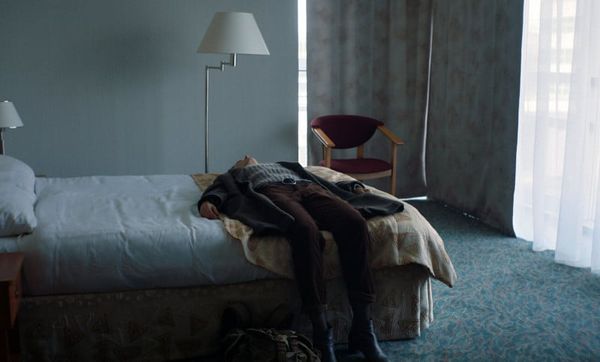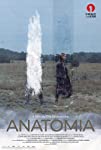Eye For Film >> Movies >> Anatomy (2021) Film Review
Anatomy
Reviewed by: Nikola Jovic

Remaining at a distance, on the edge of things, always has a negative ring to it. But as the long takes of arrival in Warsaw are setting the film’s mood and pace, one is reminded of René Char’s words: “Eliminating distance kills.” Ola Jankowska’s puzzling and thought-provoking, but nonetheless, engagingly sombre feature debut, will have us grasping for a sense of meaning and yearning for some kind of an emotional release, as the film’s protagonist is goes down memory lane in search of a connection the world around her. It will, perhaps paradoxically, explore depths of intimacy and identity by remaining distant.
Mika (Karolina Kominek-Skuratowicz) is a woman at the onset of middle age, returning to her home city of Warsaw after 15 years abroad. The reason? Her father’s (Andrzej Poniedzielski) hospitalisation due to memory loss caused by an injury he suffered more than 20 years ago, the severity of which has finally revealed itself. At first, we feel like Mika’s reconnection with her father is going to stir up emotions held inside for far too long. But once she gets to the streets of the city, rebuilt anew since she was gone, she finds her father, friends, and old lovers, as well as everything she used to consider a part of her own identity, are so far removed from what they used to be and represent, that it calls her own identity into question. But is this really a loss, or a new horizon of opportunity?

Transcendental filmmaking is always about withholding devices. Creating tension not as an extension of the plot, but by slowing everything down to a point where it produces uneasiness in the viewer. What that basically means is that a lot of these scenes are walking on the fine line between deep or dull, sometimes making it murkier and hard to tell as to where that line exactly is. But if we get past the not-so-useful labels, what we find is Jankowska’s interesting usage of thermal imaging, VHS and phone footage, as well as other kinds of mediating devices (shooting only partial close-ups of things, or through glasses/objects, etc). By sprinkling these techniques sparingly throughout the film, she manages to keep us both engaged and interested, despite the slow pace or a lack of conventional plot progression. When outlined like that, this approach may seem disjointed or far too out there for it to be considered “transcendental”, but as the title, Anatomy, suggests: it’s one functioning and interconnected unity, made of parts that are on its own separate wholes as well.
In the very beginning, we see a person lying on a bed using thermal imaging. And as they get up, the place they left is still hot, the camera showing us the contours of something already gone- a shining, or a presence, of a body not present. This theme of half-presence and traces of things is crucial to the film’s theme. In one eclectic sequence, for example, there’s a sudden jump from footage of the liberation of Poland, to the celebration of its autonomy 100 years later. The same event, both occurrences we can call nationalistic, but their meaning and motifs couldn’t be more opposed to each other. As what remains of the initial independence impulse is nothing but an empty signifier for the hooligans to inscribe themselves with.
What makes a person’s identity? Its appearance, or what lies beneath? These questions have been part of the filmmaking canon since its inception, and it’s hard to find a way in or a metaphor you can use that can seem new. Jankowska’s well thought out piece of transcendental filmmaking won’t be treating us to any of the answers, nor is it looking to deliver some satisfying revelations. As Mika’s mother, glimpsed in VHS flashbacks, says: “Inner space should be understood as a gesture towards it…” not a destination you can reach. What the film does, is compel us to explore our own emotions and relations towards the world with the not-so-common usage of different storytelling devices, even when it’s testing the limits of our patience.
Reviewed on: 23 Oct 2021















